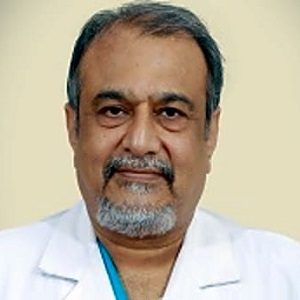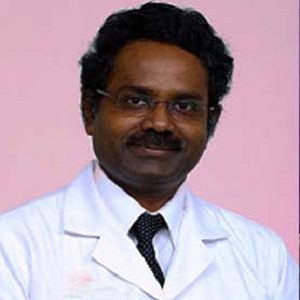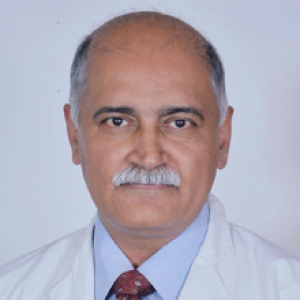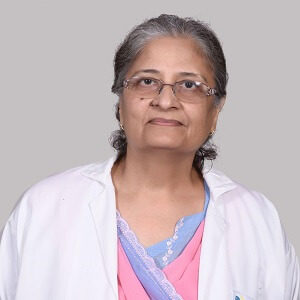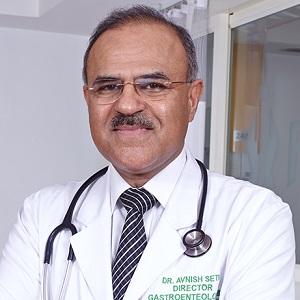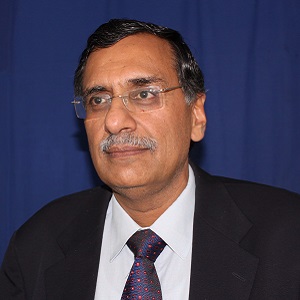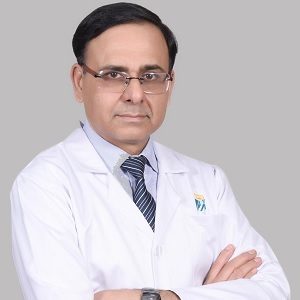Best Doctors in India for Alcoholic Hepatitis Treatment
- Cardiac Surgeon, Cardiothoracic Surgeon, Vascular Surgeon; Chennai, India
- Over 37 years’ experience
- Apollo Hospitals Greams Road
Profile Highlights:
- LF Sridhar is a well-known Cardiothoracic & Vascular Surgeon in Chennai, now working at Apollo Hospital in Greams Road, Chennai, and has an experience of 37 years in this arena.
- Some of the services available with the doctor are Mitral/Heart Valve Replacement, Cardiac Pacing, and Intra – Arterial Thrombolysis, Pacemaker Implantation, and bypass surgery besides the regular OPD procedures.
- Cardiac Surgeon, Cardiothoracic Surgeon, Vascular Surgeon, Chennai, India
- Over 25 years’ experience
- Apollo Hospitals Greams Road
Profile Highlights:
- Dr. K Madhan Kumar is a well-known Cardiac Surgeon in Tamil Nadu, having many years of experience in the domain.
- His experience came from practice and teaching. These days, he is associated with Apollo Hospital Greams Road in Chennai as a Senior Consultant Cardiothoracic & Transplant Surgeon.
- Dr. Kumar has also completed Fellowships in Cardiothoracic Surgery at SGH in London as well as ECMO, VAD, and transplantation at HH in London.
- Top Cardiac Surgeon | Max Hospital, Saket, New Delhi, India
- 29+ Years Experience
- Max Super Specialty Hospital, Saket, New Delhi
Profile Highlights:
- Dr. Kulbhushan Singh Dagar, a pioneer and an expert in the cardiology field earned his reputation through his exceptional performance in the field of complex congenital heart defects, especially for newborns.
- With over 29 years of experience, Dr. Dagar has dedicatedly performed complex surgical procedures by implementing innovative techniques and cutting-edge technologies in his procedures and is currently considered an asset to the cardiac industry, not just nationally, but internationally too!
- Top Obstetrician & Gynaecologist | Apollo Hospital, New Delhi, India
- 40+ Years Experience
- Indraprastha Apollo Hospital, New Delhi
Profile Highlights:
- Dr. Harmeet Malhotra is one of the best gynecologists in India to consult all major and complex gynecological surgeries, uterine bleeding, and cervical cerclage; in addition to the women’s general health checkups.
- Dr. Malhotra specializes in vaginal, abdominal, and Laparoscopic surgeries, as well as Hysteroscopy. She had her first Hysteroscopic surgery at Apollo Hospitals in New Delhi.
- Top Obstetrician & Gynaecologist | Max Hospital, Saket, New Delhi, India
- 31+ Years Experience
- Max Super Specialty Hospital, Saket, New Delhi
Profile Highlights:
- Dr. Usha Kumar currently serves as the Principal Consultant and Gynaecological Endoscopic Surgeon at Max Smart Super Speciality Hospital
- Dr. Usha M Kumar is a distinguished Associate Director in Obstetrics and Gynaecology, with over 31 years of extensive experience in the field.
- Dr. Usha M Kumar holds an MBBS degree and an MS in Obstetrics and Gynaecology from Lady Hardinge Medical College, Delhi. She further pursued advanced training with a Diploma in Advanced Endoscopic Surgeries in Germany and a Certificate in Laparoscopic Oncology Surgery.
- Gastroenterologist, New Delhi, India
- Over 27 years’ experience
- Manipal Hospitals, New Delhi
Profile Highlights:
- Dr. Avnish Kumar Seth is a well-renowned name in the field of gastroenterology. With fellowships in Liver transplant (Birmingham, UK) and Endoscopic ultrasound (South Carolina Alabama, USA), Dr. Avnish Seth’s areas of interest include treatment of hepatitis B, Hepatitis C, liver transplantation, and advanced GI endoscopic procedures.
- Dr. Avnish Kumar Seth has over two decades of experience in Gastroenterology Hepatobiliary Sciences. An expert in Diagnostic Therapeutic GI Endoscopy, Colonoscopy, ERCP, and Liver Transplantation.
- Top Nephrologist | Apollo Hospital, New Delhi, India
- 35+ Years Experience
- Indraprastha Apollo Hospital, New Delhi
Profile Highlights:
- Dr. Colonel Akhil Mishra is currently working as Sr. Consultant, Nephrology at Indraprastha Apollo Hospital, New Delhi. He is known for establishing the Department of Nephrology and Transplant at Apollo Hospital in 1995. He has more than 35 years of experience in this field.
- Prior to this he was working in the Army Medical Corps for 28 years (1965-1993), where he held the position of Senior Advisor in Medicine and Nephrology.
- Dr. Akhil Mishra is also known for conducting the First Kidney Transplant of the Indian Armed Forces at Army Hospital, Delhi in 1991.
- Dr. Mishra took pre mature retirement at the rank of Colonel in the year 1993. Subsequently, he established the Department of Nephrology in Escorts Research & Referral Hospital.
- He had been awarded the Vishisht Seva Medal by the President of India in 1980. He started the first kidney transplant in Army and Apollo Hospital, Delhi.
- Throughout his career, Dr. Akhil Mishra has been awarded Star Performer Consultant three times, at Indraprastha Apollo Hospital, Jan 2013, Sept 2014 & Jan 2015.
- Dr. Mishra has also been honored in 2013, by His Holiness the Dalai Lama for his dedicated work in the field of Kidney transplantation.
- He was also felicitated by the Indian Society of Nephrology (North Zone) with the Life Time achievement Award in Nephrology on 23rd Jan.2015 for his huge contribution to the growth of Nephrology.
- Top Cardio Thoracic & Vascular Surgeon | Apollo Hospital, New Delhi, India
- 37+ Years Experience
- Indraprastha Apollo Hospital, New Delhi
Profile Highlights:
- Dr. Bhaba Nanda Das is a distinguished Cardiothoracic and Vascular Surgeon with over 37 years of experience, currently practicing at Apollo Hospitals Indraprastha in New Delhi.
- Holding advanced degrees in MBBS, MS, and MCh, Dr. Das is renowned for his expertise in managing a broad spectrum of cardiothoracic and vascular conditions.
- His clinical proficiency spans the treatment of complex issues such as Aortic Valve Disease, Atrial Fibrillation, Coronary Artery Disease, and Myocarditis.
- Plastic & Cosmetic Surgeon, Gurugram, India
- Over 25 years’ experience
- Medanta-The Medicity, Gurgaon
Profile Highlights:
- Dr. Rakesh Kumar Khazanchi is the Chairman of Plastic, Aesthetic, and Reconstructive Surgery at Medanta.
- With over 25 years of surgical experience, Dr. Rakesh Khazanchi specializes in cosmetic surgery, reconstructive microsurgery, vascular malformations, replantation of amputated parts as well as head and neck reconstruction.
- Dr. Khazanchi has undertaken 22 research projects, has published over 60 papers in national and international journals, and has also contributed over four chapters in textbooks as well as edited and authored a book of Plastic Surgery for General Surgeons.
- Top Urologist | Apollo Hospital, New Delhi, India
- 30+ Years Experience
- Indraprastha Apollo Hospital, New Delhi
Profile Highlights:
- Dr. Vipin Arora is a well-known Urologist in Delhi who has been practicing for more than 30 years with success.
- Currently, he is working as a senior consultant for Urology & Andrology at Apollo Hospital, New Delhi.
- Dr. Arora specializes in prostate diseases, Uro-Oncological surgeries, and laparoscopy procedures. He is the frontrunner in Robotically- assisted laparoscopic radical prostatectomy, Urologic oncology.
- Dr. Arora pioneered the Robotic Prostate Surgery technique in India.
- He also offers CAPD, Extracorporeal shock wave lithotripsy, Flexible Ureteroscopy, Laser treatment, Polycystic Kidneys treatment, Cadaver and Live Renal Transplant, GU prosthetics, Stress Incontinence surgery TVT TOT, and TURP.
Best Hospitals in India for Alcoholic Hepatitis Treatment
ALCOHOLIC HEPATITIS
Alcoholic hepatitis is a liver infection, which is mainly caused by frequent, heavy use of alcohol. Fat can build up in the liver cells, which might lead to inflammation as well as scarring of the liver.
Alcoholic hepatitis might be mild or severe. A patient might even need a liver transplant if proper treatment is not provided, or if they don’t stop consumption of alcohol.
It is also notable that all heavy drinkers don’t develop this condition, and sometimes this condition even develops in people who drink moderately. However, if you are diagnosed with this condition, it is important for you to quit drinking alcohol. People who continue drinking alcohol might face a huge risk of serious liver damage as well as death.
Symptoms
Depending on the amount of damage to the liver, the symptoms can vary. If you are having a mild form of the disease, you might not even experience any symptoms at all. However, as the damage continues to grow, you might experience the following:
- Changes in appetite
- Dry mouth
- Weight loss
- Pain or swelling in the abdomen
- Jaundice, or yellowing of the skin or eyes
- Fever
- Nausea and vomiting
- Easy bleeding or bruising
- Changes in your mental state, including confusion
- Fatigue
The symptoms of this condition are similar to those caused by a few other health conditions. Therefore, if you develop any of these symptoms, it is best to get a proper diagnosis as well as begin treatment.
Causes & risk factors
Alcoholic hepatitis generally develops when the alcohol you drink causes damage to your liver. However, it is not clear why alcohol does this damages only to some heavy drinkers.
Few factors that are known to play a role in this condition include:
- The body’s process that breaks down alcohol produces some toxic chemicals
- These chemicals can trigger inflammation that can destroy the liver cells
- Thus, over time, scars replace healthy liver tissue, thus interfering with the function of the liver
- This irreversible scarring, which is also termed cirrhosis, is the final stage of alcoholic liver disease
If you have hepatitis C and continue to drink, even moderately, you are more likely to develop cirrhosis.
Some heavy drinkers are also malnourished because they don’t eat a proper balanced diet. Alcohol and its byproducts also prevent the body from absorbing nutrition properly. Lack of nutrition can contribute to liver cell damage.
Some other risk factors that can lead to this condition include:
- Your sex- Women are usually at a higher risk of developing alcoholic hepatitis since the way alcohol is processed in women is different.
- Binge drinking- Having over five drinks within two hours for men and four or more for women can increase the risk of alcoholic hepatitis.
- Obesity- Heavy drinkers who are overweight are also more likely to develop alcoholic hepatitis and to progress from that condition to cirrhosis.
- Race and ethnicity- Hispanic and Negroid people might be at higher risk of alcoholic hepatitis.
- Genetic factors- According to studies, there may be a genetic component in alcohol-induced liver disease. However, it is difficult to separate genetic and environmental factors.
Diagnosis
If you are showing symptoms of alcoholic hepatitis, your doctor will first inquire about your medical history and alcohol consumption. Next, he/she will perform a physical exam to see if you have an enlarged liver or spleen. They might also need a few more tests to confirm your diagnosis, such as:
- Complete blood count (CBC)
- Liver function test
- Ultrasound of the liver
- Abdominal CT scan
- Blood clotting tests
In some cases, a liver biopsy might also be needed to confirm the diagnosis of alcoholic hepatitis. A liver biopsy requires your doctor to remove a tissue sample from your liver, which is then tested in the lab. This method helps to show the severity and type of liver disease.
Treatment
Stopping alcohol consumption is the most important treatment for alcoholic hepatitis. There is no cure for this condition, but treatment can help in reducing or eliminating symptoms, or stopping its progression.
It is also important to note that scarring of the liver is permanent, but treatment can aim to restore as much function as possible.
Dietary changes
Medication
Liver transplant
The best hope of recovery is to be aware of the signs and symptoms as well as to reduce, manage, or if possible, completely stop consumption of alcohol.
Complications
Alcoholic hepatitis might lead to severe other complications such as:
- Enlarged veins (varices)- In this condition, blood that is unable to flow freely through the portal vein, can back up into other blood vessels in your esophagus or stomach.
- Hepatic encephalopathy- This condition can be caused by the buildup of toxins if your damaged liver is unable to remove all the toxins from your body. It involves confusion, drowsiness, and slurred speech.
- Ascites- Ascites is a condition in which the fluid that accumulates in the abdomen may get infected and thus, require treatment with antibiotics. Although this condition is not life-threatening, it can be a sign of advanced alcoholic hepatitis, or cirrhosis.
- Kidney failure- A damaged liver affects blood flow to the kidneys, thus resulting in kidney failure.
- Cirrhosis- The scarring of the liver might lead to liver failure.
Prevention
Alcoholic hepatitis might be prevented if you take the following steps:
- Drink alcohol in moderation, if at all- For healthy adults, moderate drinking means no more than one drink a day for women of all ages and men older than 65, and not over two drinks a day for men aged 65 and younger. However, if you prevent all alcohol, it is a certain way to prevent this condition.
- Check before mixing medications and alcohol- Ask your doctor if it’s safe to drink alcohol while you are taking medications. Consider reading the warning labels on over-the-counter medications as well. Don’t drink alcohol when you are taking medications that warn of complications when combined with alcohol.
- Protect yourself from hepatitis C- Hepatitis C is an infectious liver disease that is caused by a virus. If it is left untreated, it may lead to cirrhosis. If you are having hepatitis C and you consume alcohol, you’re generally more likely to develop cirrhosis than if you don’t drink.

